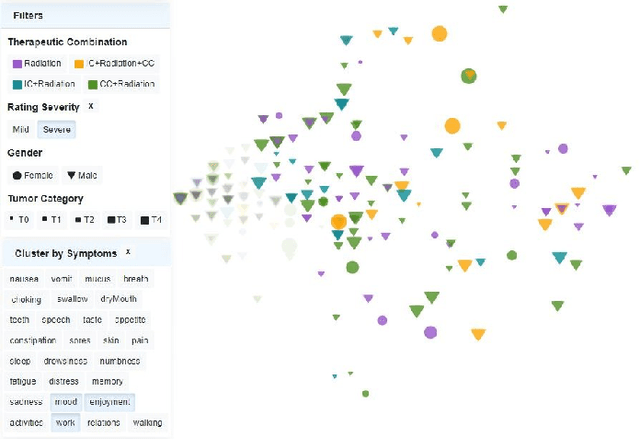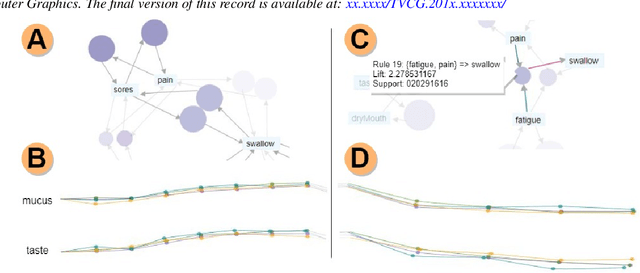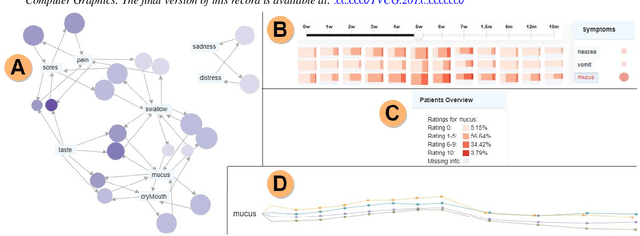C. David Fuller
THALIS: Human-Machine Analysis of Longitudinal Symptoms in Cancer Therapy
Aug 05, 2021



Abstract:Although cancer patients survive years after oncologic therapy, they are plagued with long-lasting or permanent residual symptoms, whose severity, rate of development, and resolution after treatment vary largely between survivors. The analysis and interpretation of symptoms is complicated by their partial co-occurrence, variability across populations and across time, and, in the case of cancers that use radiotherapy, by further symptom dependency on the tumor location and prescribed treatment. We describe THALIS, an environment for visual analysis and knowledge discovery from cancer therapy symptom data, developed in close collaboration with oncology experts. Our approach leverages unsupervised machine learning methodology over cohorts of patients, and, in conjunction with custom visual encodings and interactions, provides context for new patients based on patients with similar diagnostic features and symptom evolution. We evaluate this approach on data collected from a cohort of head and neck cancer patients. Feedback from our clinician collaborators indicates that THALIS supports knowledge discovery beyond the limits of machines or humans alone, and that it serves as a valuable tool in both the clinic and symptom research.
 Add to Chrome
Add to Chrome Add to Firefox
Add to Firefox Add to Edge
Add to Edge